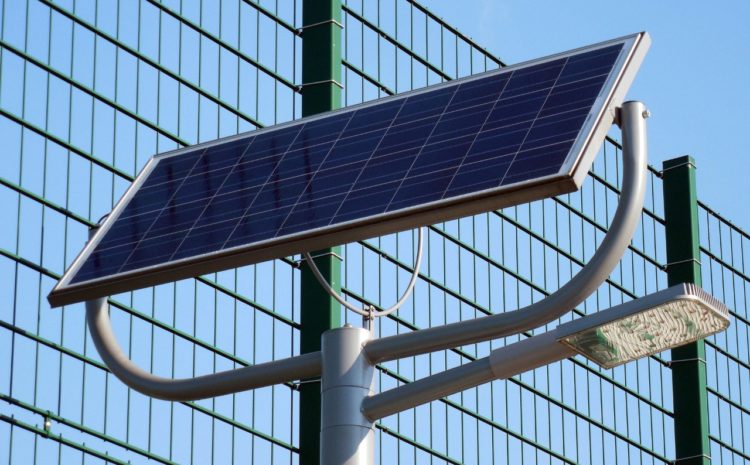
Using Solar Energy, Definition, Advantages, and Tips
The definition of solar energy is that it is one of the renewable energies, which is the transformation of solar energy, most of the sunlight is transformed into visible light and infrared radiation after it has passed through the earth’s atmosphere. Same as Photosynthesis in which plants utilize sunlight to transform carbon dioxide into sugar and carbohydrates, here sunlight is converted into electricity using solar cell panels. In addition to being environmentally friendly and promoting energy independence, solar energy is also a sustainable source of energy. Solar power is abundant, reliable, clean, renewable, and relatively reasonable.
Using Solar Energy, how does it work?
Photovoltaic (PV) panels or solar panels convert sunlight into electrical energy to produce solar energy.
A layer of silicon cells, a metal frame, a glass case encased in a specific coating, and wiring make up each individual panel. The panels are arranged in “arrays” (an ordered series) and put on rooftops or in sizable outdoor places for optimum impact. During daylight hours, the solar cells, which are also known as photovoltaic cells, absorb sunlight.
Areas where solar energy is used:
Homes
Solar panels are frequently used by homeowners to heat and cool their houses. They offer a return on investment that paying monthly utility bills does not because they are a renewable, pollution-free alternative.
Solar Ovens
Solar ovens use sunlight as a source of energy to cook food. They don’t harm the environment and are simple to use. They are ideal for people who live in places with limited fuel supplies but plenty of sunlight.
Purifying Water
Engineers and scientists now can design tools that can clean water by utilizing solar energy. These can be large-scale systems that treat water. Using solar energy is the best sustainable method of purifying water.
Agriculture
Solar energy is used for industrial irrigation as well as small-scale farming. Water can be pumped on a regular schedule as needed by using solar pumps to store energy.
Let’s have a look at some advantages of using solar energy panels.
Advantages:
- Renewable Energy Source
The fact that solar energy is a completely renewable energy source makes it stands out among all the advantages of solar panels. It is available every day and can be accessed anywhere in the world. Unlike some other energy sources, solar energy will never run out.
- Reduce the monthly electricity Bills
You will save money on electricity Bills, which is the main advantage of installing solar panels. Solar energy has many benefits, including financial gains and cheaper electricity costs each month.
- Various Applications
There are numerous uses for solar energy. You can create heat or electricity (photovoltaics) (solar thermal). Solar energy can be used to distill water in locations with a shortage of clean water, and generate electricity in places without access to the electrical grid.
- Technological advancement
The technology in the solar energy sector is always improving, and advancements will accelerate in the coming years. Nanotechnology and quantum physics advancements have the potential to boost solar panel efficiency and double or even triple the electrical input of solar power systems. With the advancement of solar power monitor it’s now easy to know about electricity consumption.
- Reliable
In comparison to other energy sources that rely on fossil fuels, solar energy has been shown to be a reliable energy source. You are not exposed to electric company failures that could result from disasters or brownouts if you use solar energy, you can generate your own electricity instead because you are fully independent and not dependent on any electricity-providing company. Constant production of electricity with a low risk of failure is provided by solar energy. Solar energy systems, such as solar panels, are not subject to wear and tear and do not make noise.
Tips for using solar energy effectively:
Use Led Bulbs:
Additionally, LED bulbs can last 3.5 times longer than traditional types of bulbs. You can lower your overall cooling costs by using LED lamps. They don’t produce heat, can be dimmed, and are safe to use outdoors.
Use Heavy voltage appliances in the daytime
Utilize your appliances during the day to take advantage of the strongest sunshine. This is key for appliances with heavy consumption, such as dishwashers, dryers, and ovens.
Cleaning of solar panels
The panels’ ability to function as well as they did initially will be reduced over time by the accumulation of dirt, dust, and bird droppings. So that’s why it’s important to clean the solar panels.
Make sure your panels are exposed directly to sunlight
The enemy of solar energy is shade, so cut back any plants or trees that can hinder the effectiveness of your system.
Solar Batteries
The best approach to store energy for later use is via solar batteries. When you need to utilize electricity in the late afternoon or evening, this is useful. Instead of paying the higher rates that are charged during these peak hours, you can use the energy that is stored in the batteries.
Solar monitoring apparatus
there are multiple solar monitoring system and best solar monitoring app that will help you monitor the performance.